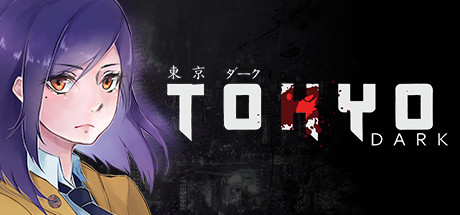
So I just finished my first playthrough of Tokyo Dark, and I'm left feeling somewhat disappointed. Not by what I got, which was a perfectly serviceable visual novel/point and click adventure game, but that it could have been so much more.
Punk's not dead, but she could be.
You play as Detective Ayami Ito, one of Tokyo PD's finest, investigating the disappearance of her partner. It's a classic detective story set up, and inevitably it spirals out of control and starts to claw at Ito's sanity as she comes to grips with the darkness under the surface and uncovers the mystery at the heart of it all.
Also, you spend ages in cat cafes and eat pancakes. This is my first major disappointment with the game, it's tone. It's promising a psychological horror, but instead it's full of light fluffy maid cafes and cats and sweetness in the first half of the game (past the first section at least), only to delve into it's darker, more interesting story in the second half. It's a weird tonal shift, and it's not entirely what I expected. That, and it's just not that dark in places. It hints at a darker storyline, but never really delivers.
The second major disappointment has to do with the SPIN (Sanity, Professionalism, Investigation, Neurosis) system element. Essentially, all your actions and interactions can have an effect on each one of those meters, and you're told to watch your sanity in particular, or you might suffer a psychotic breakdown, and given medication to avoid such a fate. But the less sane you get, the more your investigation skill increases, as you're able to see the world for what it truly is. Professionalism relates to how you present yourself and how you act (you are a cop after all), while your Neurosis increases if you talk to people you've already talked to, or pace up and down.
Which is very cool in theory, but in practice.. it's not really developed properly. You don't get many opportunities to actually go home and relax and take your meds, for instance, as you're often locked into certain areas and plot threads. I think I managed to go back to Ito's apartment twice during the game, iirc. The impact of those meters is also rather minor and seems to pop up at random times during the story. I'd have much prefered great impact, with a seriously insane Ayami having trouble interacting with people, but seeing things that give her amazing leaps in her investigation, while a more professional, coherent Ito would have to put in the hard work investigating and chasing up leads and talking to suspects, hanging on every word incase you miss an important clue. Turn it up to 11, go crazy with it.
You'll spend a lot of time standing and talking.
It's certainly worth a playthrough. What's there is fairly engaging, Detective Ito is a decent character, and there's a total of 11 endings you can search for. But it could and should have been so much more. There's hints of a much better game throughout this, and hopefully the devs can build on this and improve for the next game.




















